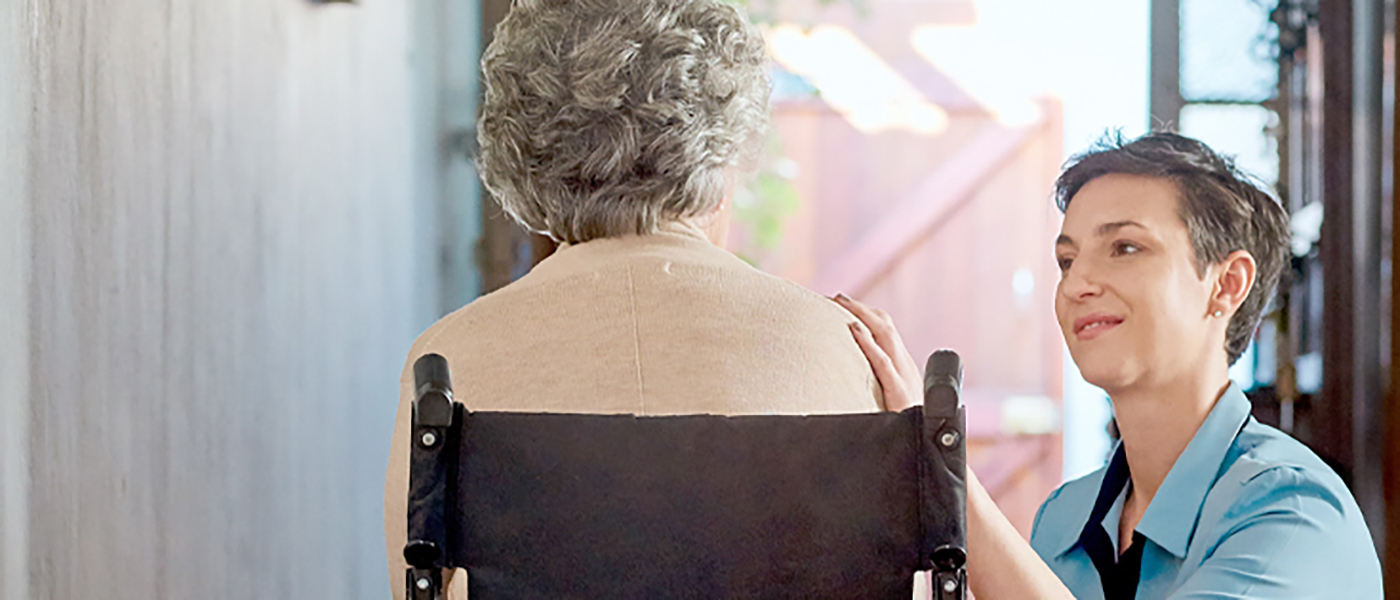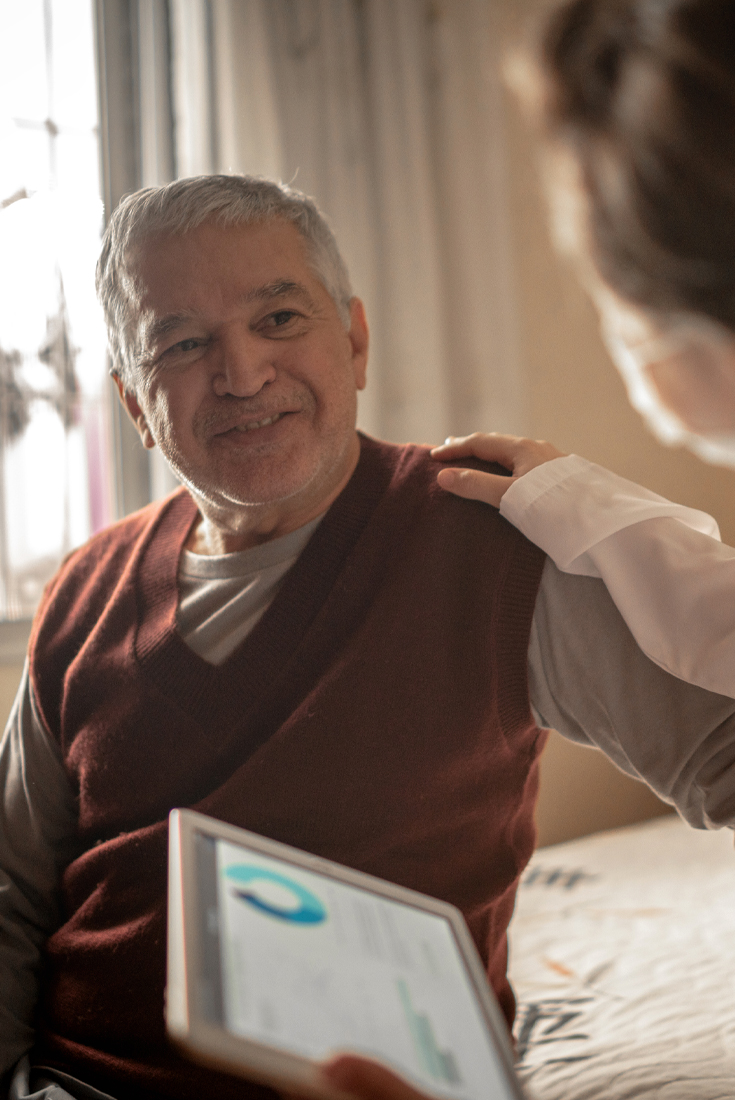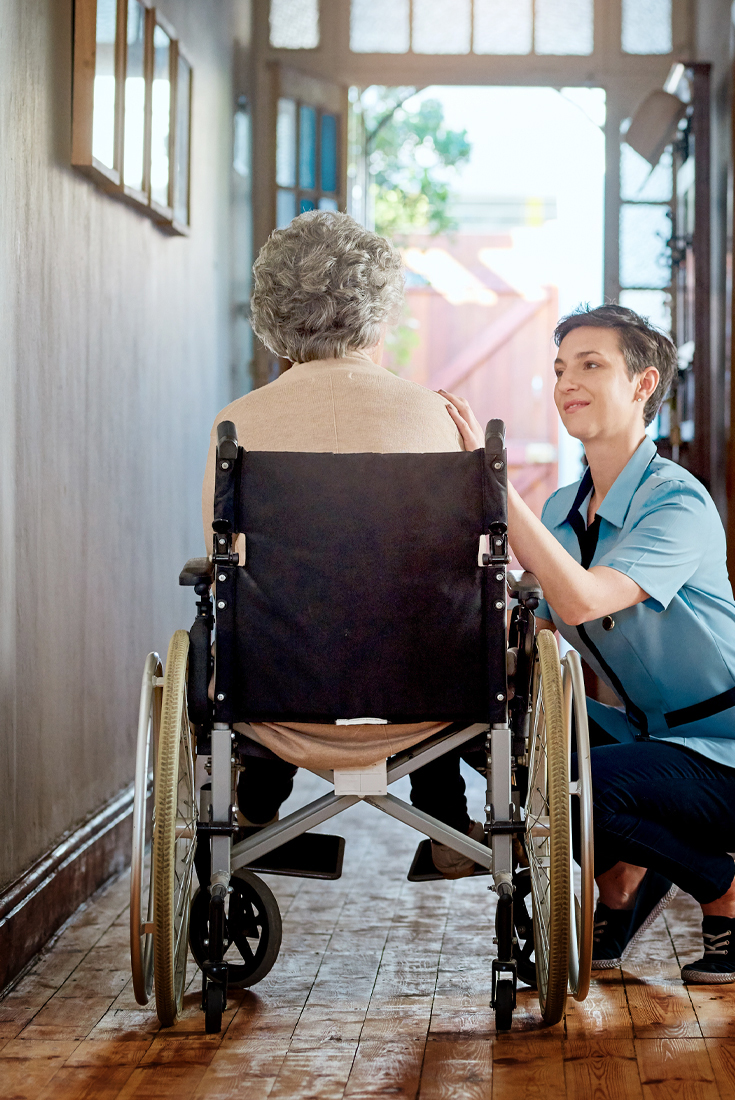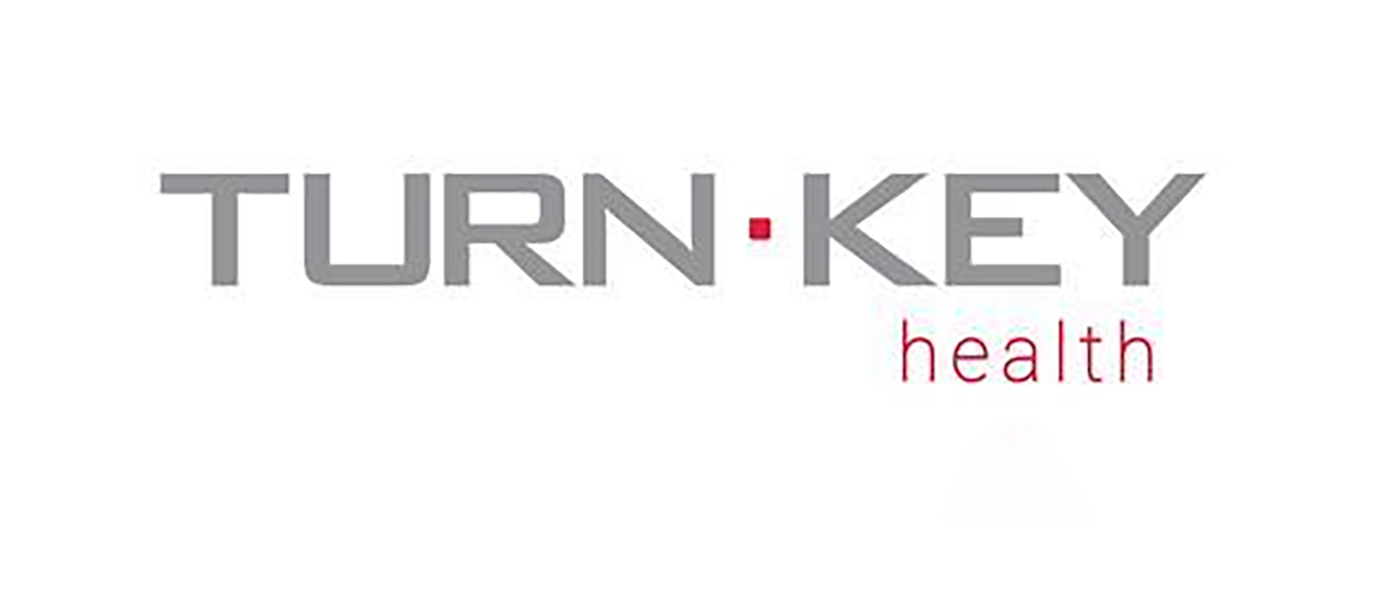Home-Based Palliative Care
Family caregivers for seriously ill patients play an important role in society. Not only do they provide emotional and physical support for their loved one, but they also assume the responsibilities of preparing meals, providing transportation, maintaining the home, managing medications and coordinating doctor’s appointments. This critical role is often essential for keeping the individual safe and well cared for at home and preventing avoidable emergency department visits and hospitalization.
Helping Family Caregivers Recharge after the Loss of a Loved One
The role of caregiver is often vital in families to ensure the health and well-being of those they love. During the recent COVID pandemic, the lines between providing family caregiving locally or remotely have blurred. Each caregiver has his or her own story.
How Home-Based Palliative Care Teams Help See the Big Picture
Throughout the health care community, there is increasing recognition of the significant impact of social determinants of health (SDoH) on individual health and quality of life. COVID-19 has exacerbated social isolation and loneliness, limited food access, and highlighted financial, housing and employment insecurities and transportation issues.
Celebrating Our Nation’s Caregivers: Helping Families Face New Realities During COVID-19 Pandemic
Turn-Key Health, a CareCentrix company, recognizes the critical role of family caregivers and their ongoing support, especially those who support loved ones with serious illness. As we celebrate National Family Caregivers Month this November, we acknowledge their tireless efforts to optimize individual patient care and care coordination and improve quality of life in the home.
Building a Better Model for Care at Home
“Building a Better Model for Care at Home,” an AHIP webinar presented by CareCentrix, featured Mary Naylor, Ph.D., RN, FAAN, Marian S. Ware Professor in Gerontology, Director of the NewCourtland Center for Transitions and Health; Terri Maxwell Ph.D., APRN, Chief Clinical Officer, Turn-Key Health, a CareCentrix Company; and Melissa Carr, General Manager, Home Services, CareCentrix
Home-Based Palliative Care Improves Outcomes for Individuals Struggling with Serious Illness: Addresses SDoH, Customizes Care for Dual Eligible Members
During the webinar, Jasen Gundersen, M.D., MBA, chief medical Officer, CareCentrix, Say Salomon, M.D., National Medical director of Acute and Post-Acute Care, ChenMed, and David J. Sand, M.D., MBA, FACS, chief medical officer, Care N’ Care Insurance Company, Inc. extolled the many benefits of the home-based palliative care (HBPC) solutions provided by Turn-Key Health, a leading home-based palliative care company. Turn-Key Health, a CareCentrix company, serves health plans, hospitals and physicians.
Supporting the Seriously Ill at Home During COVID-19
The National Council on Aging (NCOA) has published a blog penned by Terri Maxwell, Ph.D., APRN, chief clinical officer, Turn-Key Health, a CareCentrix Company, discussing the important role of home-based palliative care (HBPC) for supporting seriously ill people at home. With the COVID-19 pandemic disproportionately affecting the chronically ill and those age 60+, Dr. Maxwell offers guidance on how best to support the seriously ill in their homes during lock-down and beyond.
Resolving SDoH through Home-Based Palliative Care — One Patient at a Time
The pronounced impact of social determinants of health (SDoH) for seriously ill people during the COVID-19 pandemic is generating significant interest and response from payors, providers, and regulators in both private and public sectors. Taking an optimized, process-driven approach for resolving SDoH, Turn-Key Health’s Palliative Illness Management™ (PIM). PIM is an innovative, high-touch, home- based program designed to motivate patients and caregivers to be fully engaged in choosing and implementing a plan of care that optimizes their quality of life and results in treatment decisions in concordance with their goals, preferences and values.
CareCentrix Acquires Turn-Key Health
CareCentrix, the leader in home-based and post-acute care services, today announced it has acquired Turn-Key Health, a leading community-based palliative care company serving health plans, hospitals and physicians. As a result of the acquisition, Turn-Key’s proprietary Palliative Illness Management™ (PIM™) program, which leverages data analytics and artificial intelligence to deliver personalized palliative care plans, will be fully integrated into CareCentrix’s platform.
Expanding the Definition of Care Coordination for Members with Serious Illness
There is growing recognition among health care providers and payers of the need to address the often overlooked non-clinical issues that can impact care quality. These issues are often associated with social determinants of health, such as food insecurity, low health literacy, or need for transportation to fill prescriptions or attend physician appointments. Left unaddressed, they represent serious gaps in care that frequently lead to unplanned care and poor health outcomes.
Why Palliative Care Must Soon Come To Skilled Nursing
Given their emphasis on rehabilitation and recovery, skilled nursing facilities aren’t typically places where patients receive palliative care.
Palliative Care Clinicians Improve Care Coordination
Care coordination involves deliberately organizing patient care activities and sharing information among all of the participants concerned with a patient’s care to achieve safer and more effective care. This means that the individual’s needs and preferences are known ahead of time and communicated at the right time and to the right people.







